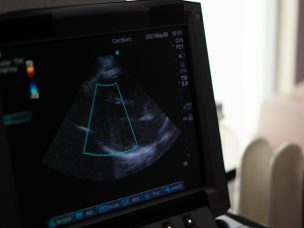ATTR-CM
Depletion of Transthyretin Amyloid With Antibody NI006
Medically reviewed by Dr. Kimberly Langdon Cull, M.D. on Sept. 21, 2023 No major side effects were reported in this phase 1 study of the recombinant human antibody NI006 for ATTR cardiomyopathy and heart failure. Cardiomyopathy induced by misfolded transthyretin (transthyretin amyloid, or ATTR) is a deadly, degenerative illness. There has been improvement in delaying disease...
Transthyretin Amyloid Cardiomyopathy in Preserved Ejection Fraction Heart Failure Patients
Medically reviewed by Dr. Shani S. Saks, D.O. on July 27, 2023 This study found that patients with higher transthyretin amyloid cardiomyopathy scores had different clinical and echocardiographic characteristics and higher cardiovascular risk. Heart failure patients with preserved ejection fraction may benefit from the transthyretin amyloid cardiomyopathy score’s moderate discriminatory performance and satisfactory calibration in...
Cardiac Amyloidosis Prevalence in Old Patients With Heart Failure
Medically reviewed by Dr. Shani S. Saks, D.O. on July 27, 2023 Cardiac amyloidosis is a common cause of heart failure and should be screened in elderly heart failure patients with myocardial thickening. Cardiac amyloidosis (CA) has emerged as an underdiagnosed cause of heart failure (HF) in recent years. The available studies on CA prevalence...
Diagnostic Value of Left Atrial Strain Imaging in Cardiac Amyloidosis
Medically reviewed by Dr. Shani S. Saks, D.O. on July 27, 2023 Left atrial function evaluated by speckle tracking echocardiography is significantly impaired in cardiac amyloidosis patients compared to hypertrophic cardiomyopathy patients and healthy controls. Left atrial (LA) function assessment is crucial for gauging left ventricular filling in various cardiovascular conditions. Cardiac amyloidosis (CA) causes...
Invasive and Non-Invasive Pathways for Diagnosing Cardiac Amyloidosis
Medically reviewed by Dr. Shani S. Saks, D.O. on July 27, 2023 Diagnosing cardiac amyloidosis (CA) can be difficult due to its nonspecific presentation and overlapping clinical features. Clinical suspicion, cardiac biomarkers, monoclonal protein assessment, echocardiography, cardiac magnetic resonance findings, and bone scintigraphy are important in the diagnostic algorithm. Non-invasive techniques are preferred, but tissue...
Prevalence and Treatment of Arrhythmias in Cardiac Amyloidosis Patients
There is a high prevalence of arrhythmias in cardiac amyloidosis patients, with implantable devices and catheter ablation showing partial effectiveness in their treatment. The deposition of abnormal protein fibrils in cardiac amyloidosis can cause heart failure associated with diastolic dysfunction and arrhythmias. Various types of arrhythmias are observed in cardiac amyloidosis patients. However, the prevalence...
The Present and Future of Cardiac Amyloidosis Treatment
Promising new treatments for cardiac amyloidosis are expected in the near future. Cardiac amyloidosis (CA) results from the deposition of misfolded proteins in the cardiac tissue. Its two main forms are light chain amyloidosis (AL) and transthyretin amyloidosis (ATTR), further classified as familial (vATTR) and wild-type (wtATTR). The treatments for AL, wtATTR, and vATTR differ...
Recognizing Warning Signs of Cardiac Transthyretin Amyloidosis in Clinical Practice
Knowledge of red flags suggesting cardiac transthyretin amyloidosis is crucial for identifying at-risk patients and establishing the correct diagnosis. Cardiac amyloidosis is caused by the extracellular deposition of misfolded proteins in cardiac tissue. Wild-type transthyretin amyloidosis (wtATTR) is the most common form of cardiac amyloidosis. It mostly affects elderly patients, who usually present with heart...
Cardiac Amyloidosis Red Flags: Identifying Early Signs for Timely Treatment
Cardiac amyloidosis, particularly wild-type transthyretin amyloidosis, is often underdiagnosed, affecting mainly elderly men. Recognizing red flags suggestive of wild-type transthyretin amyloidosis is important for timely diagnosis and allows patients to benefit from effective therapies. Cardiac amyloidosis is a group of diseases characterized by extracellular deposition of misfolded proteins in the heart. Three types of amyloidosis...
More Medical News














